本文由 cómo crear historias 授权mooool发表,欢迎转发,禁止以mooool编辑版本转载。
Thanks cómo crear historias for authorizing the publication of the project on mooool, Text description provided by cómo crear historias.
cómo crear historias:“El Coso”是Cehegin(西班牙穆尔西亚地区)小镇旧城区后面一个巨大的空间。它以前是一个顺应山坡而建的住宅居民区,在20世纪50年代的一场大暴风雪之后,许多房屋倒塌被毁,留下了大片的倾斜空地。这里曾是许多家庭的家园,可以看到美丽的农田和果园景观,它仍然附着在人们的记忆中,但在物质层面上它正在恶化:一片高度不一、杂乱不堪的街道,陡峭斜坡不再适合居住。除此之外,Cehegin的旧城区似乎缺少宜居的花园,城市也需要通过它们来呼吸空气。实现这一目标似乎是一项艰巨的任务,因为这项行动将需要大量的水,而穆尔西亚地区的水资源非常有限。
cómo crear historias:Known as “El Coso”, the place was a great void at the back of the old part of the town, called Cehegín (in the Region of Murcia, Spain). Formerly it was a neighborhood with dwellings adapted to the slopes of the hill. After a big snow storm in the 1950s, many of these houses collapsed or were damaged, leaving that big, sloped empty space. With beautiful views on the landscape of crop fields and orchard, this place was the home of several families. It was still attached to the memories of the people but it was deteriorating in the physical plane. It was a great mess of disconnected streets with height differences, uninhabitable for its steep slopes. Besides this, the old part of Cehegín seemed to lack inhabitable gardens, and the city needs to breathe through them. Achieving this seemed a dificult task. That operation would require large amounts of water, and the Region of Murcia has very limited wáter resources.
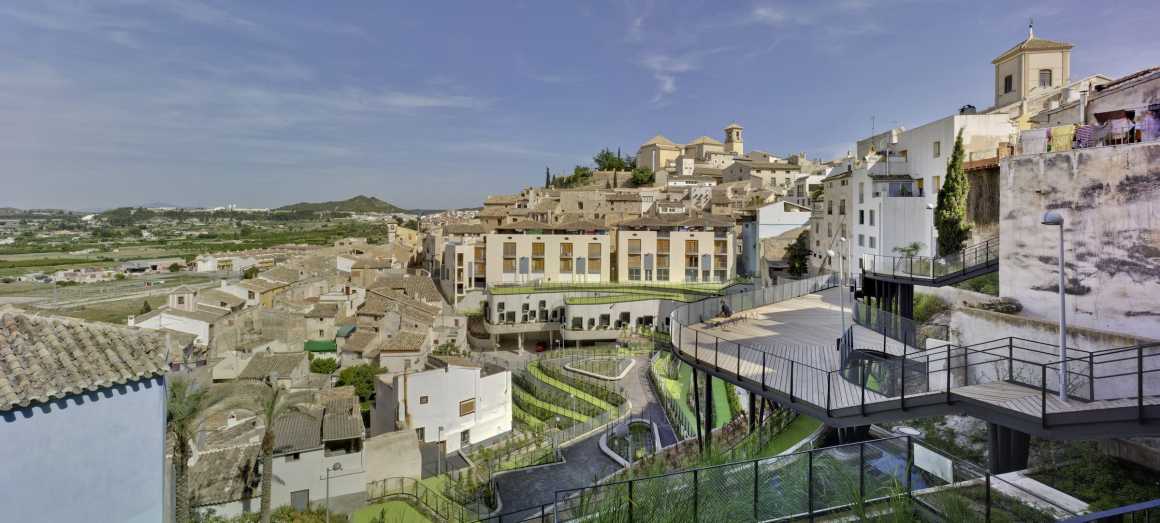
如何优化水的使用,来满足公园里所有植物的生长?我们在场地的高处收集雨水和废水,再利用高度差使水沿着带有水生植物(大型植物)的净化池流动,在环路的尽头,我们得到了用于灌溉可居住花园的循环水,这是一个有着自己的小气候的丛林。
How can we optimize the use of water in order to achieve the growth of all the plants in a park? We collect the rain water and the waste water in the high part of the site. We use the height differences to make the water go along purifying ponds with river plants (macrophytes). At the end of the circuit we obtain recycled water for irrigating an inhabitable garden, a jungle with its own micro-climate.
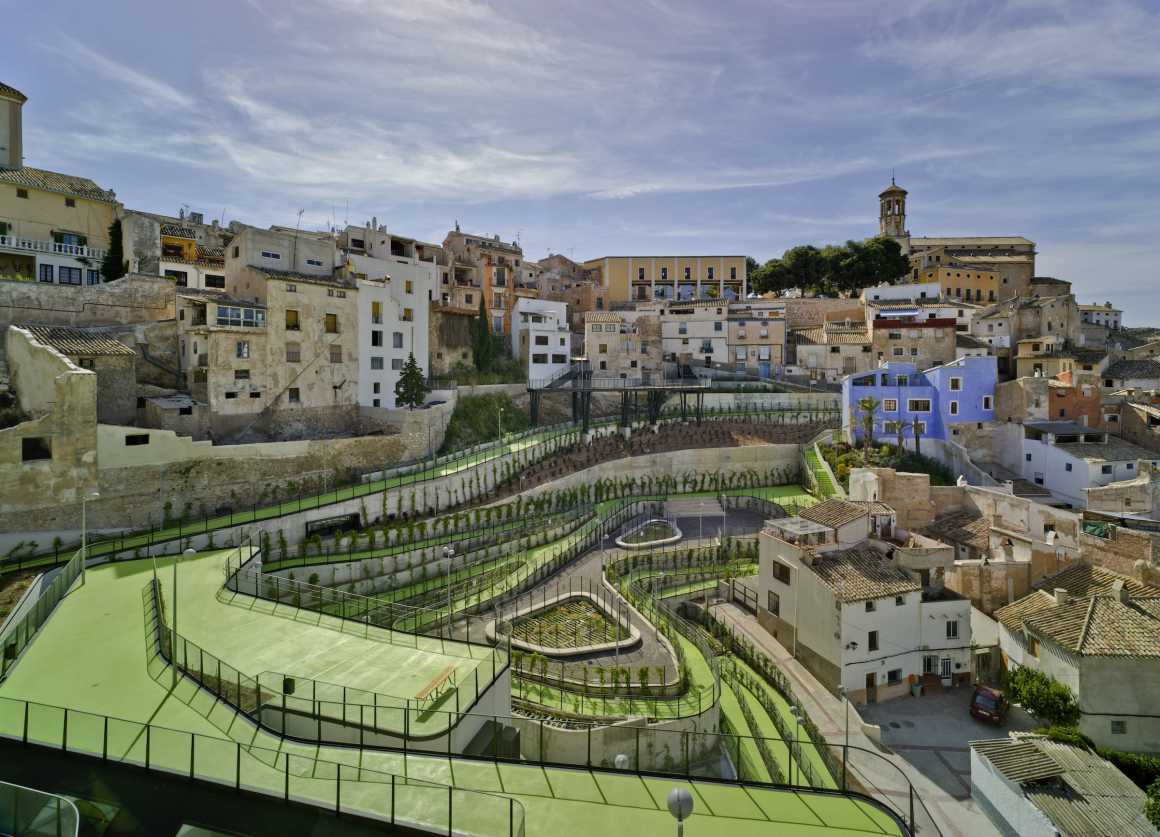
第一件要做的事是找到那些没有连接起来的街道。这里共有9条的街道可以在不同的条件下连接场地,我们还找到了所谓的“渴望之路”,即邻居们的足迹所创造的路线,然后我们根据这个来追踪这些路径,并结合净化池系统将边界上的街道连接起来。
The first thing to do was to locate the streets that were disconnected. There are streets that accede the site in 9 points in different conditions. We also located the so called “desire paths”, made by the footsteps of the neighbours. Then we traced the paths based on those footprints on the ground, connecting the streets on the borders and merging those paths with the purifying ponds system.
▼平面图 Master plan
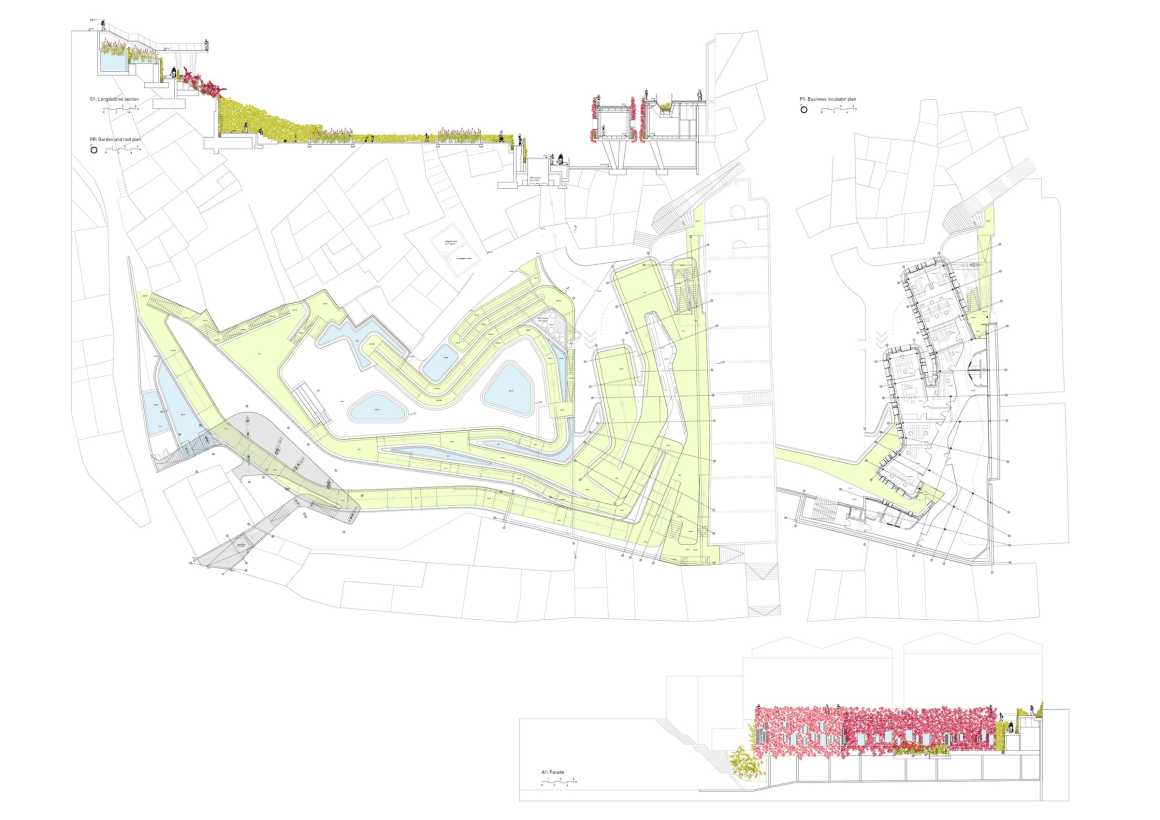
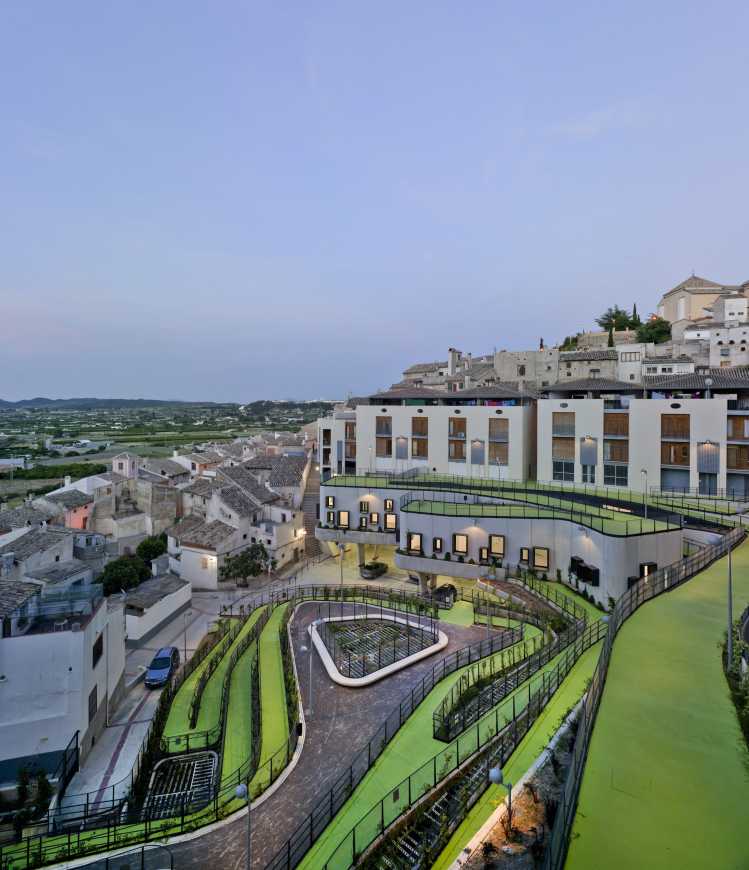
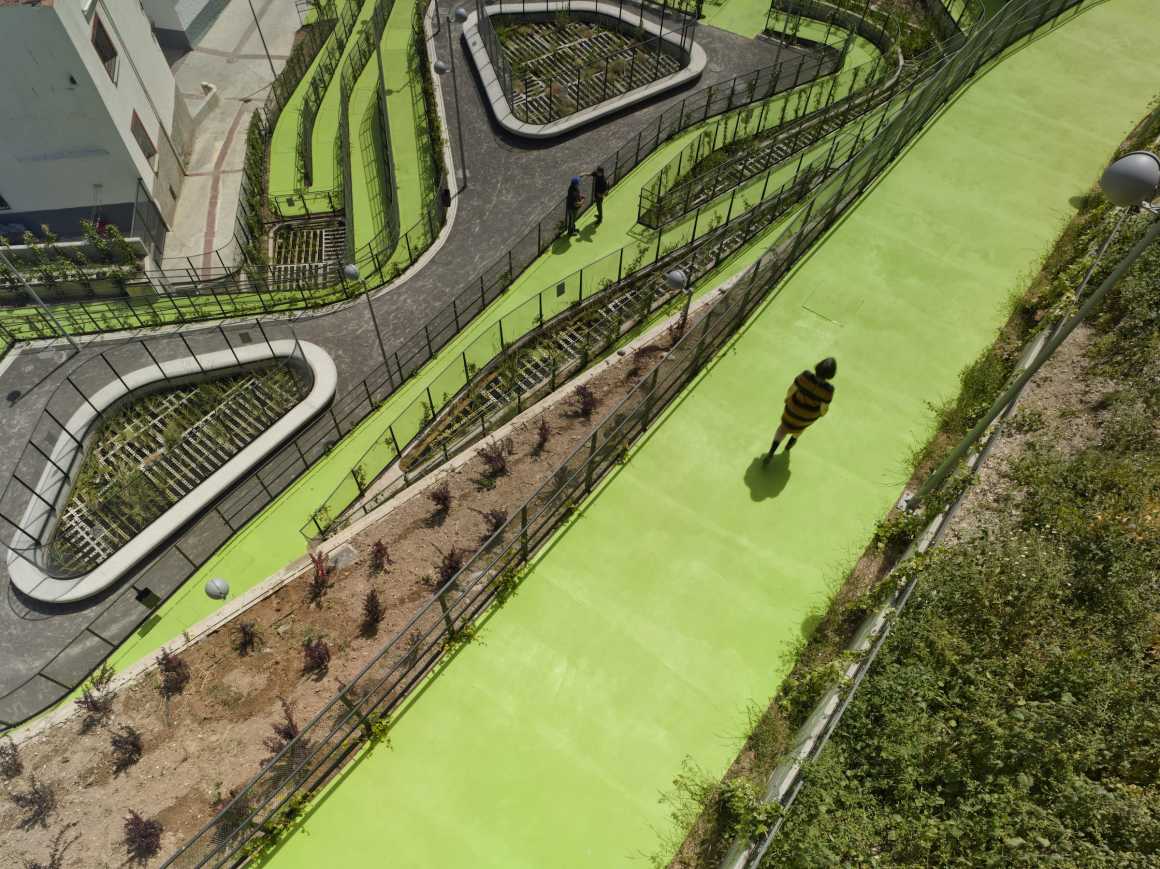
我们把建筑隐藏在人行道的“口袋”里,融入到道路和平台的网络中后,鉴于该镇和该地区的现状,市政府决定将这座建筑作为一个商业孵化园,这样公园就能够创造新的就业机会和循环水这两种重要和稀缺的资源。我们定义了一个系统并将其转化为项目,解决该地区的特殊问题,如地形问题或缺水问题。该系统可以很容易地转移到其他地方,即使是在不同规模的场地,我们只需要在池塘里种植当地的河岸植物,就可以通过自然的方式净化河水。
We hid a building in a pocket of the walk path, integrated into the paths and platforms network. At some point, the Municipality decided to dedicate this building to host a business incubator. This way, the park will be able to produce new jobs and recycled water, two important and scarce resources, given the current situation of the town and the Region. We defined a system and turned it into a project that was able to solve the particular issues of that area, such as topographical problems or lack of water. The system can be easily transferred to other places even at a different scale. We only have to place ponds with local riparian plants, which naturally clean the water of the rivers.
▼花园植物示意 Garden plants
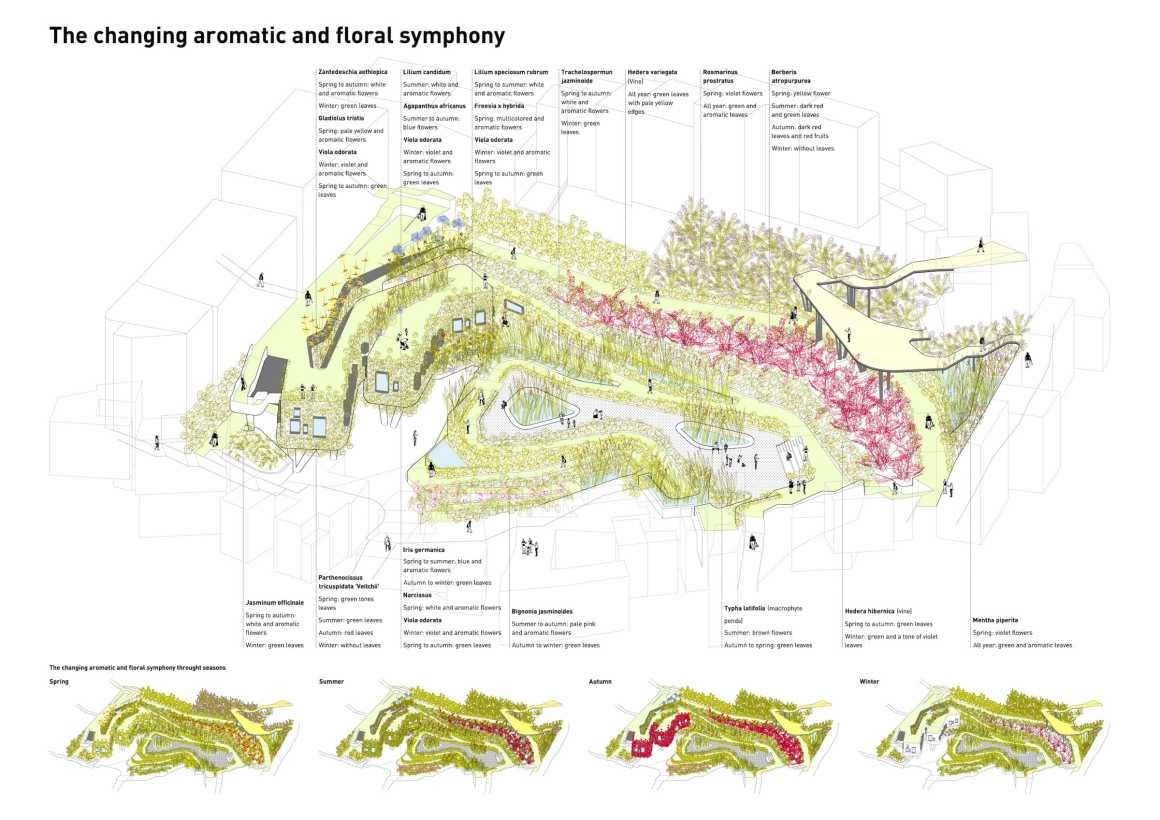

▼雨水循环分析 Water cycle analysis


这是一个社会一体化的景观,通过连接以前没有联系或难以行走的不同城市点,为残疾人建立简易斜坡,平等了人民的权利。承包商和市政官员还可以与当地工人,甚至那个街区倒塌的房子的前居民签订合同来开发许多任务。在基地挖掘时,操作人员发现了一座18世纪的酒窖遗迹,公园将这一发现融入道路网络,其中的一个池塘变成了一扇水平的窗户,每个人都可以从那里感受考古学并观看生产和储存葡萄酒的陶罐。
It is a social integration landscape, and evens the rights of the people, by connecting different city points that previously were unconnected or hard to walk, by establishing easy slopes for disabled persons. The contractor and the municipal officials were able to contract local workers for developing many of the tasks. Even several of them were former inhabitants of the dwellings that collapsed in that neighborhood. During the excavation works, the operators found the remains of a wine cellar dated from XVIII century. The park integrated this finding into the pathway network. One of the ponds was turned into a horizontal window. From there everyone can enjoy archeology and see the earthenware jars where the wine was produced and stored.

该系统为如何处理水树立了榜样,并能让居民积极地参与节约用水。它向他们展示了我们如何在老城区的范围内,用有限的资源、小气候和丰富的生态系统建造一个花园。除了水的生产和使用,该装置还利用了场地的物理配置,按照自然坡度布置池塘,并优化了电动泵的使用。这种野生植物系统的维护将减少到一个园丁15到20天的工作量,只需清除过滤器,打开、关闭阀门和修剪植物。
The system sets an example of how water should be treated, and can actively involve the neighbours in the objective of saving water. It shows them how we can make a garden with limited resources, a microclimate and a enriched ecosystem within the limits of the old town. Besides the production and use of the water, the installation takes advantage of the physical configuration of the site by placing the ponds following the natural slope and optimizing the use of the electric pump. Being wild plant systems, maintenance will be reduced to 15 or 20 days of one gardener work, that should clear filters, open and close the valves and mow the plants.
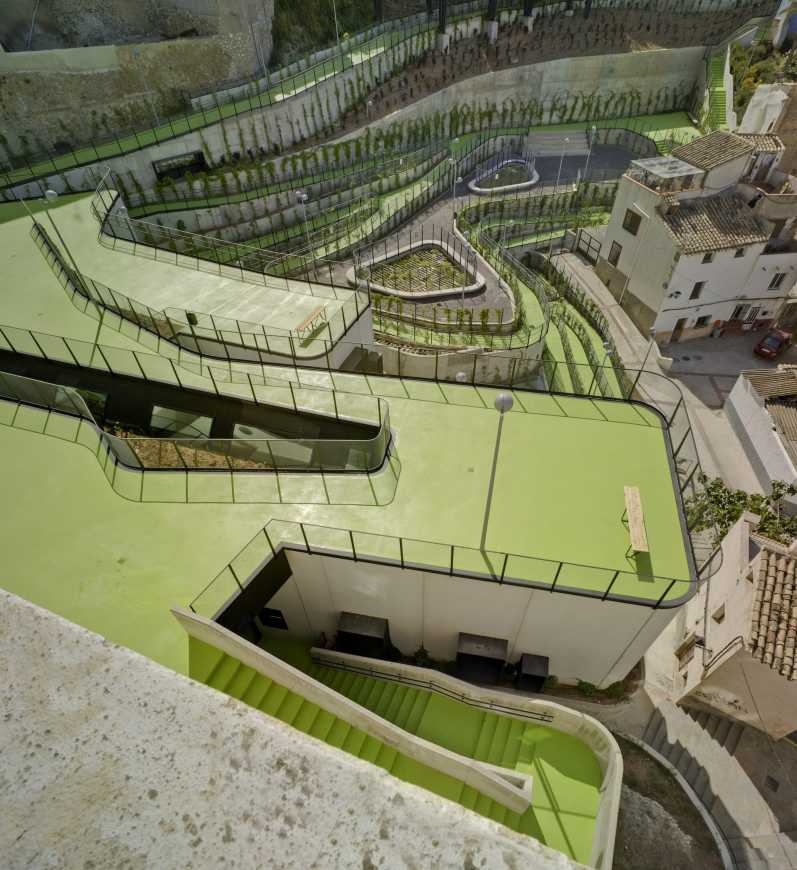
此外,该系统还依赖于限制成本的元素,从而高度优化了装置。它是一个受控的野生空间,与周围环境建立了联系,整合了自身的生命周期。从美学角度来看,植物将是最重要的建构元素。公园与城镇融为一体,它尊重现有的地形和周围的建筑,不会改变城市的天际线,事实上,从果园和农田的角度来看,这个公园是完全隐藏的,而对步行者来说,在错综复杂的城市中发现一片绿洲也是一件令人惊喜的事。
Further on the system relies on elements that limit costs giving the result of a highly optimized installation. It is conceived as a controlled wild space that establishes relations with its surroundings, integrating its own life cycle. Plants will be the most important constructive element from an aesthetic point of view. The park is integrated into the town. It is respectful with the existing topography, and the surrounding buildings. It doesn’t modify the town’s skyline from a distant or near view. In fact from a point of view on the orchards and crop fields, the park is completely hidden. It is a surprise for the walker to discover an oasis in the middle of a intricate urban area.

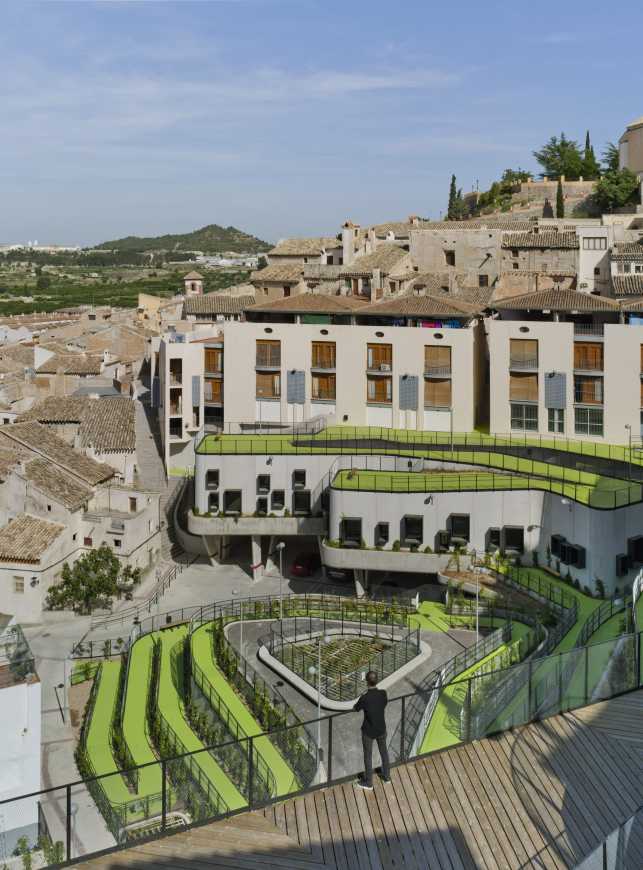

最终我们创造了一个生产水的花园,这里的植物吸引着动物,到今天为止,我们在这里发现了猫、青蛙、雨燕、鸽子和许多不同种类的昆虫,他们把公园作为日常生活的一部分,每天不断地从“El Coso”走到另一边,用自己的动作和声音为那些树叶、水和居民生活做出贡献。
The result is a garden that produces water, where flora attracts fauna. Until the present day we confirm the presence of cats, frogs, swifts, pigeons, and a number of different kinds of insects. They have stablished the park as a part of their living routine. They contribute with their movements and sounds to those produced by the leaves, water and the neighbours with their daily duties and in their constant walking through “El Coso” to the other side.
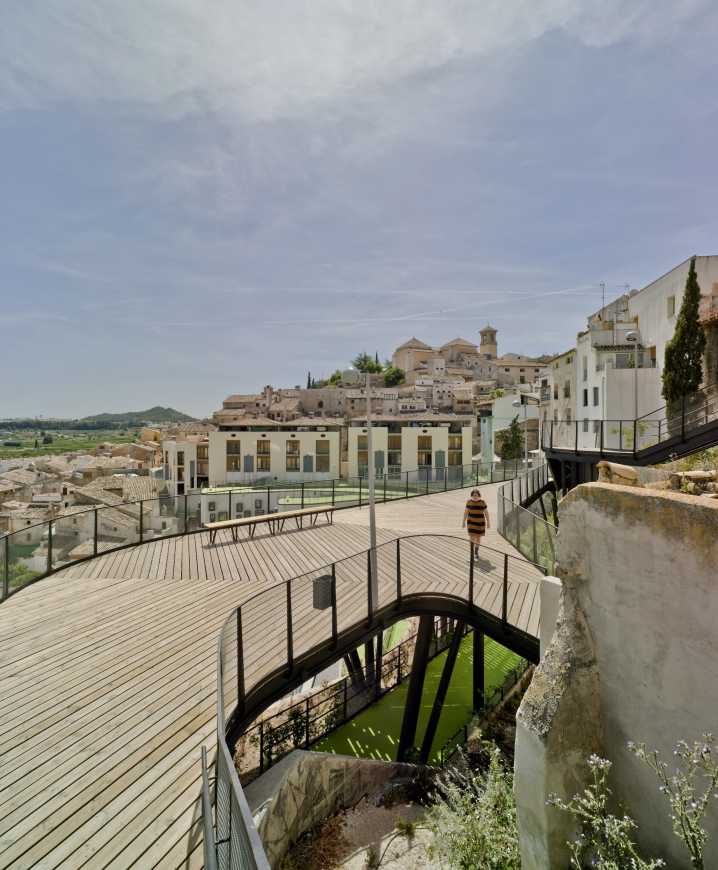
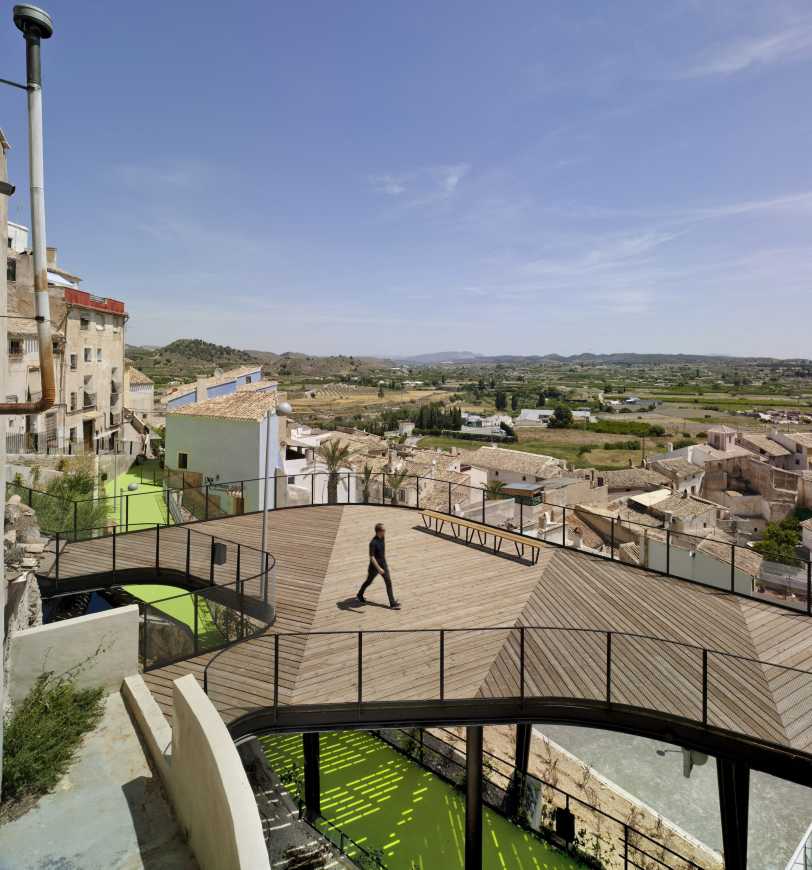
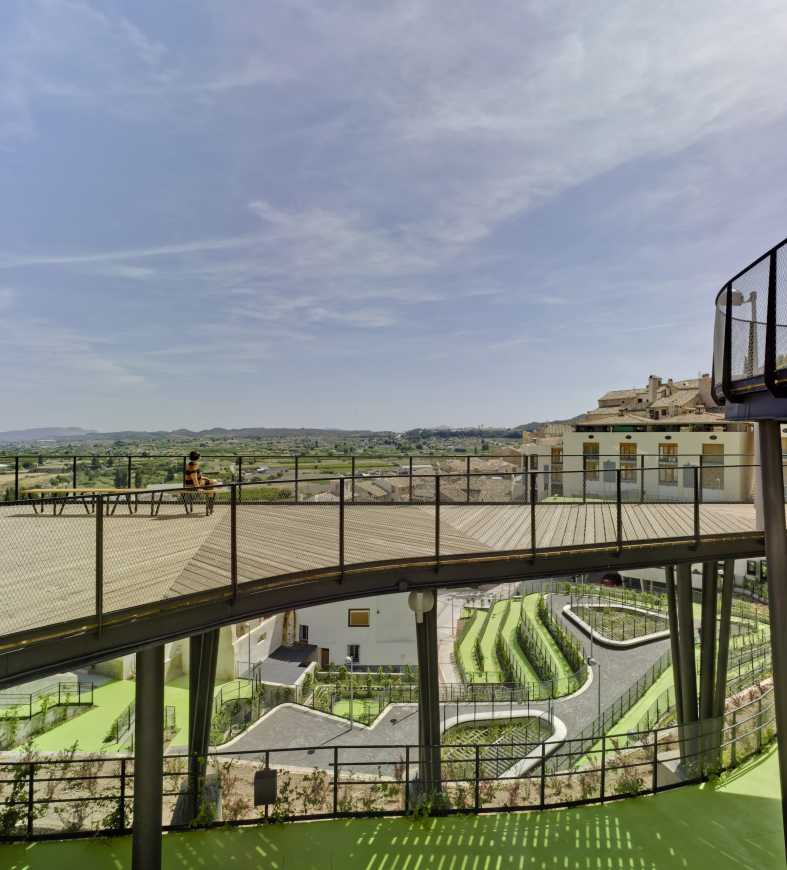
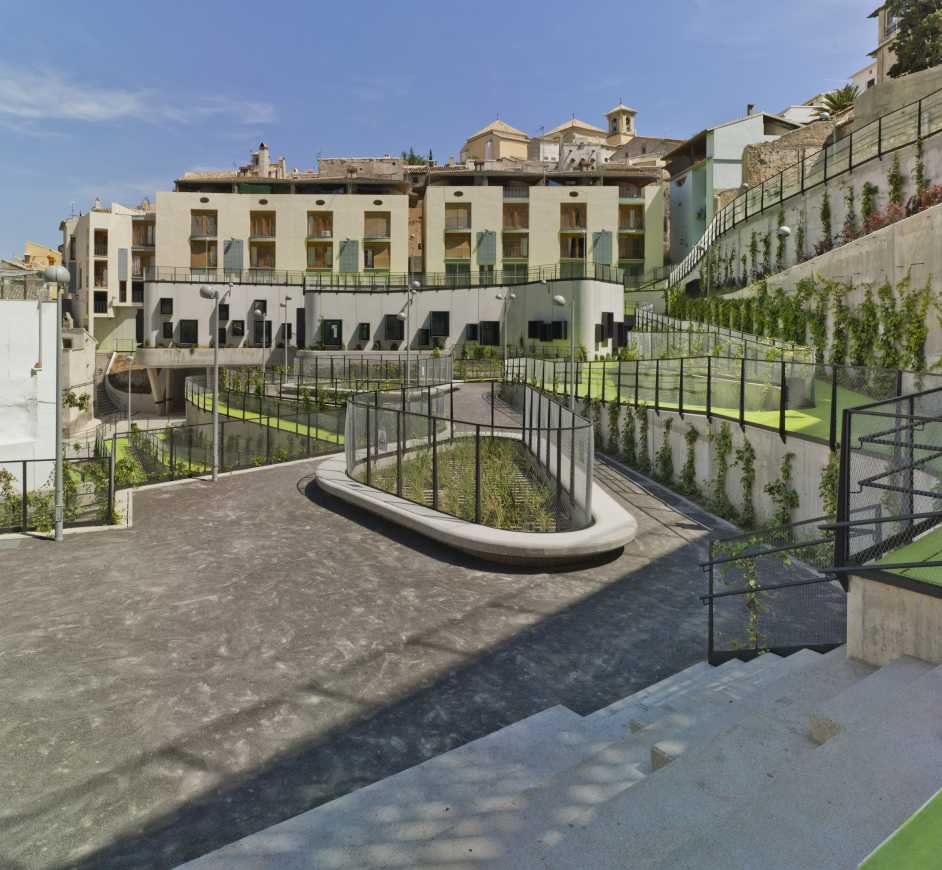
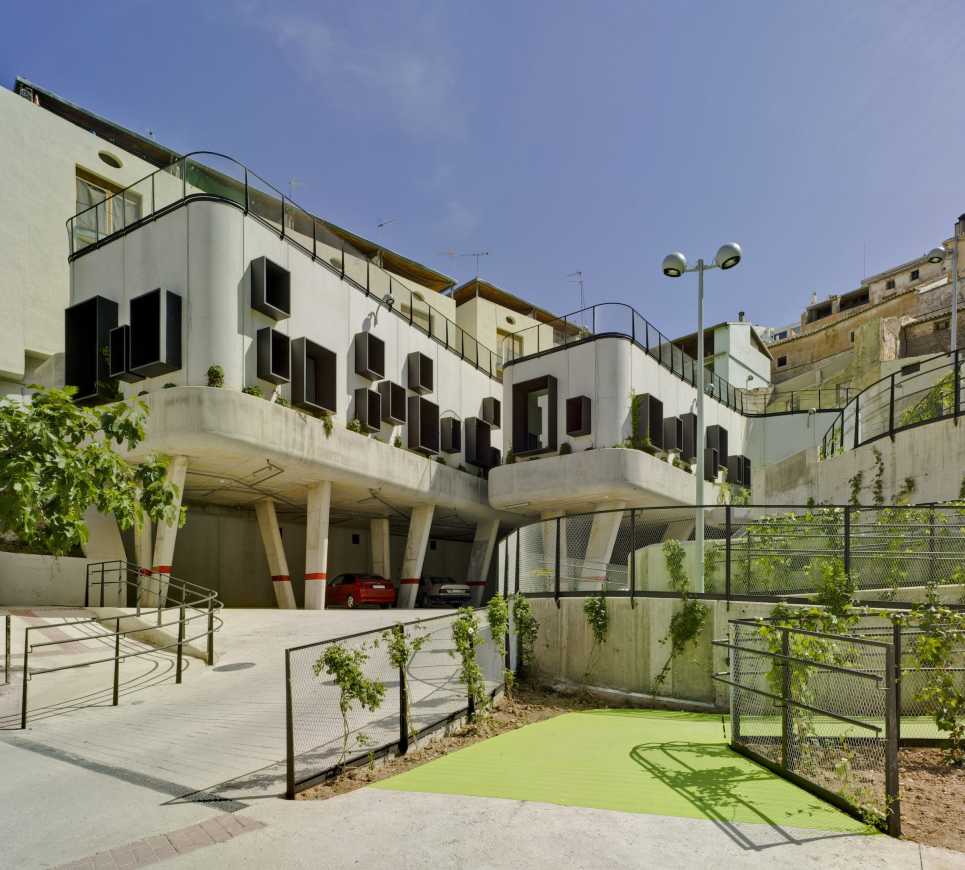
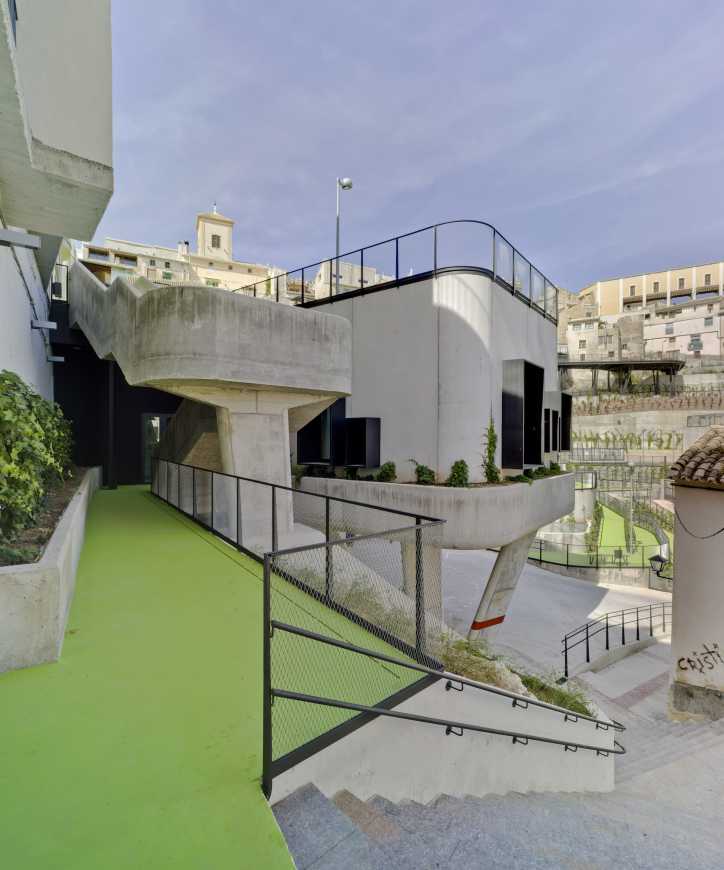
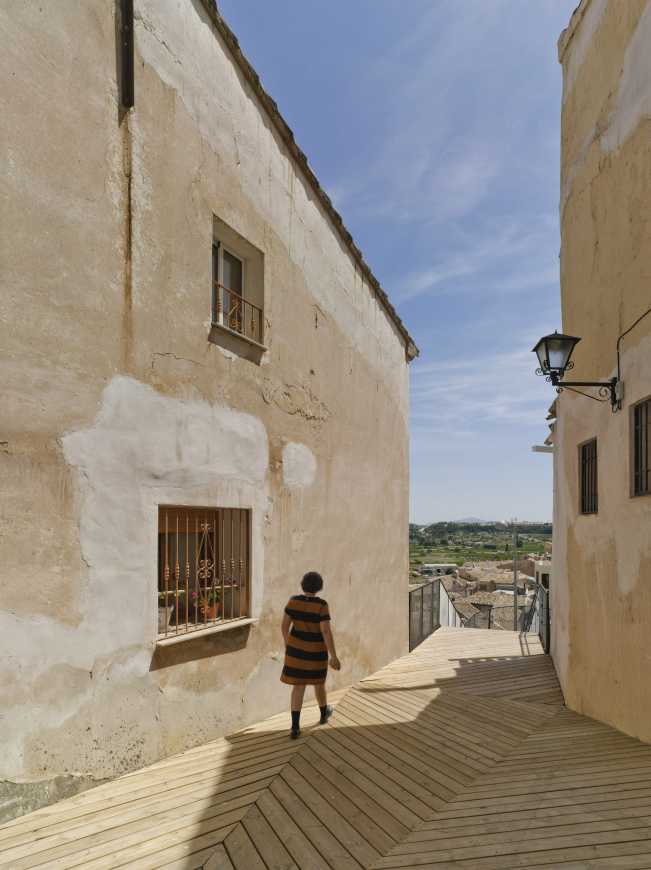
▼孵化园室内空间 Interior space
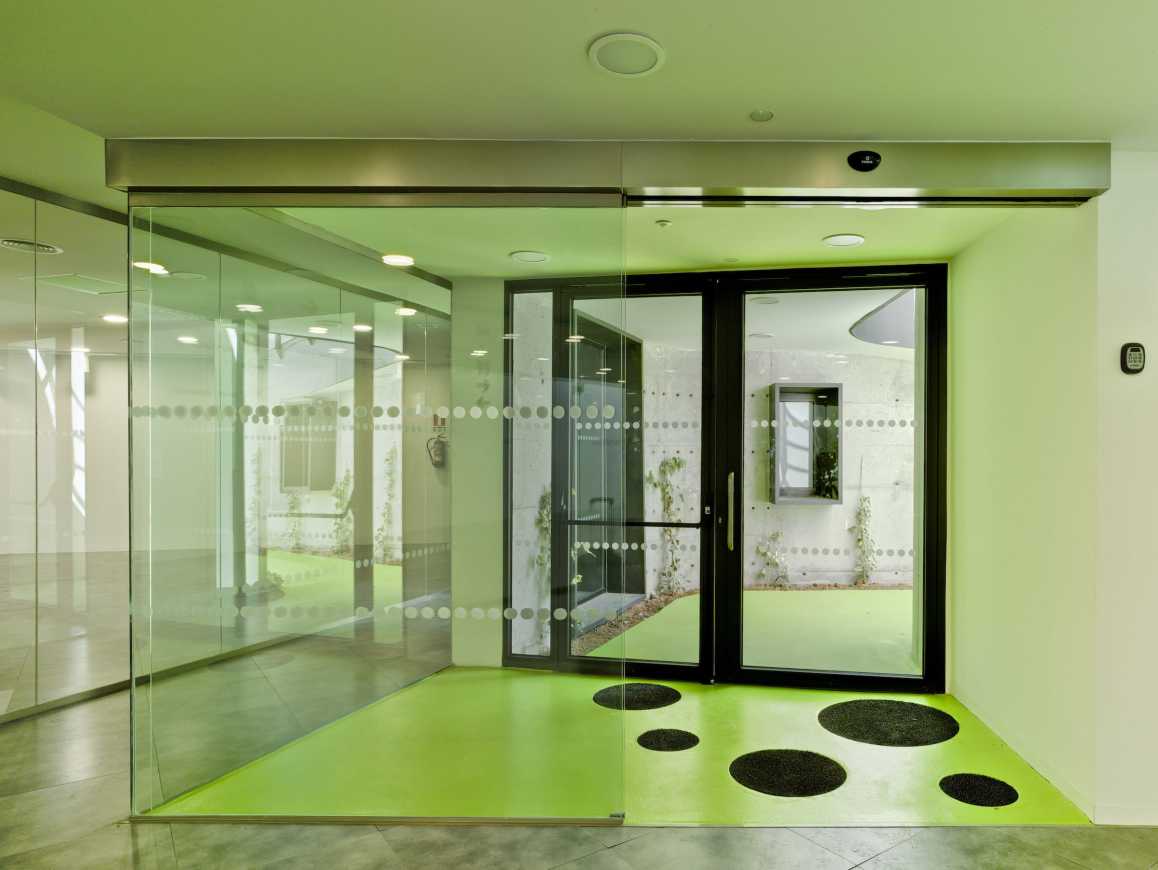
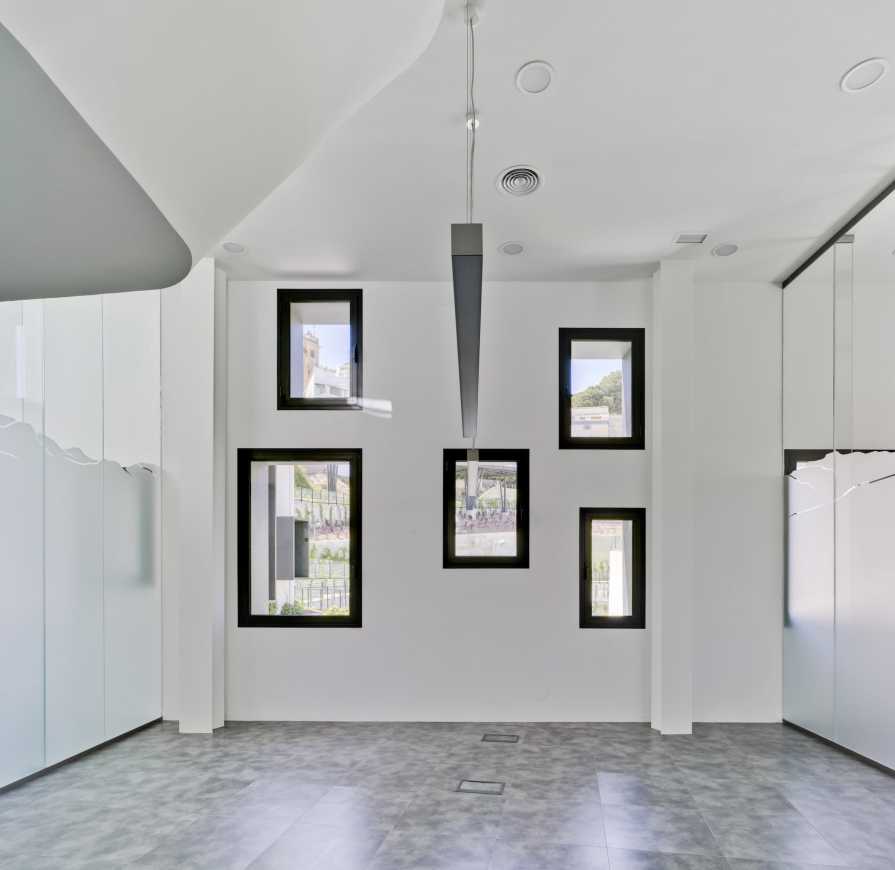
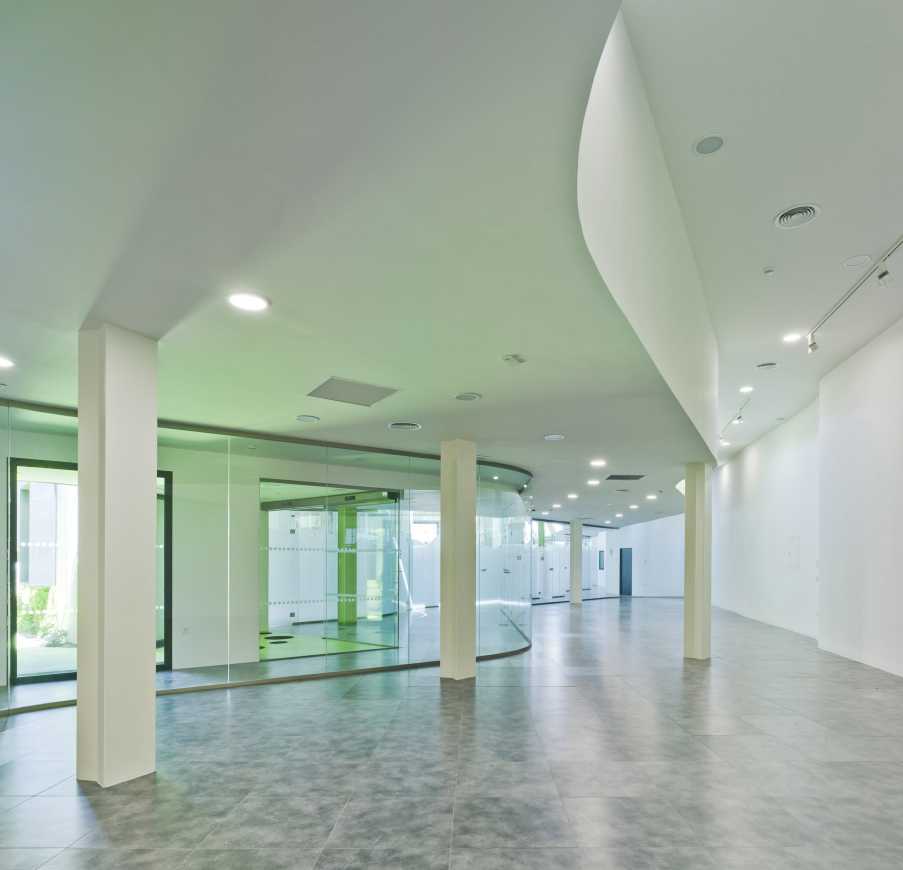
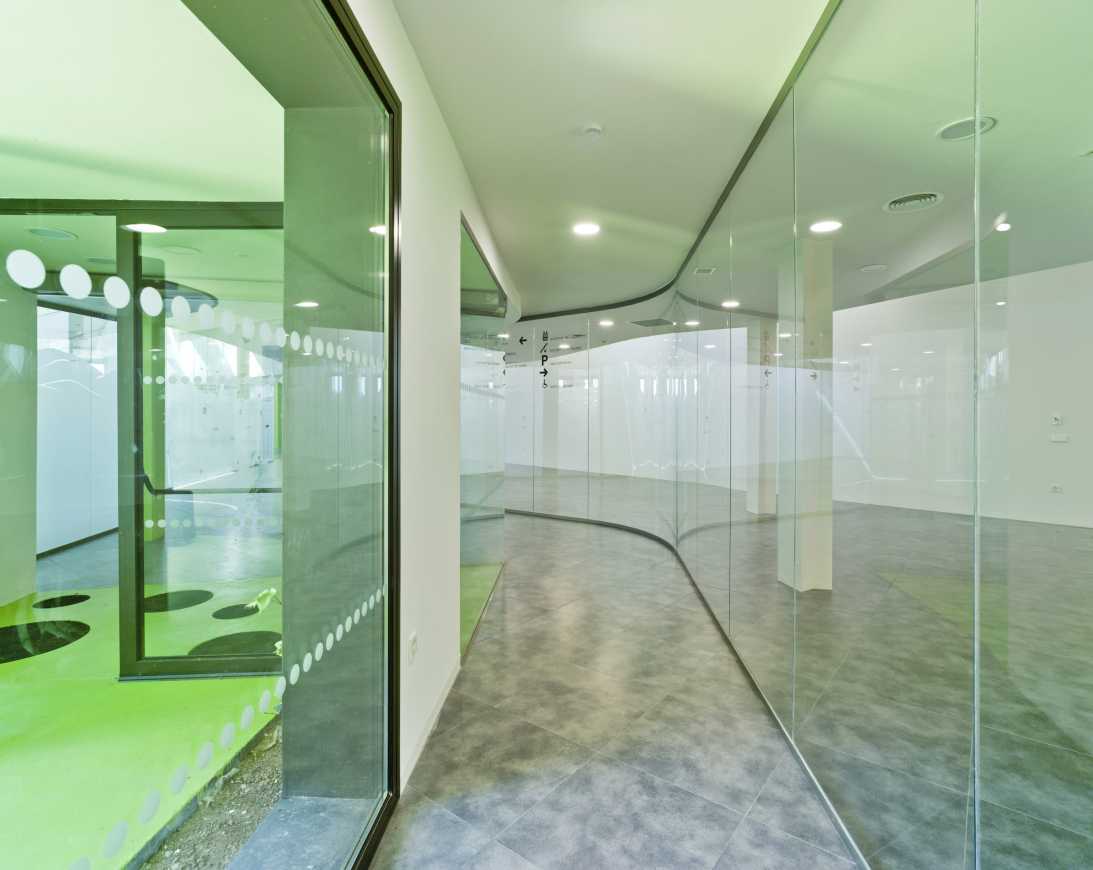
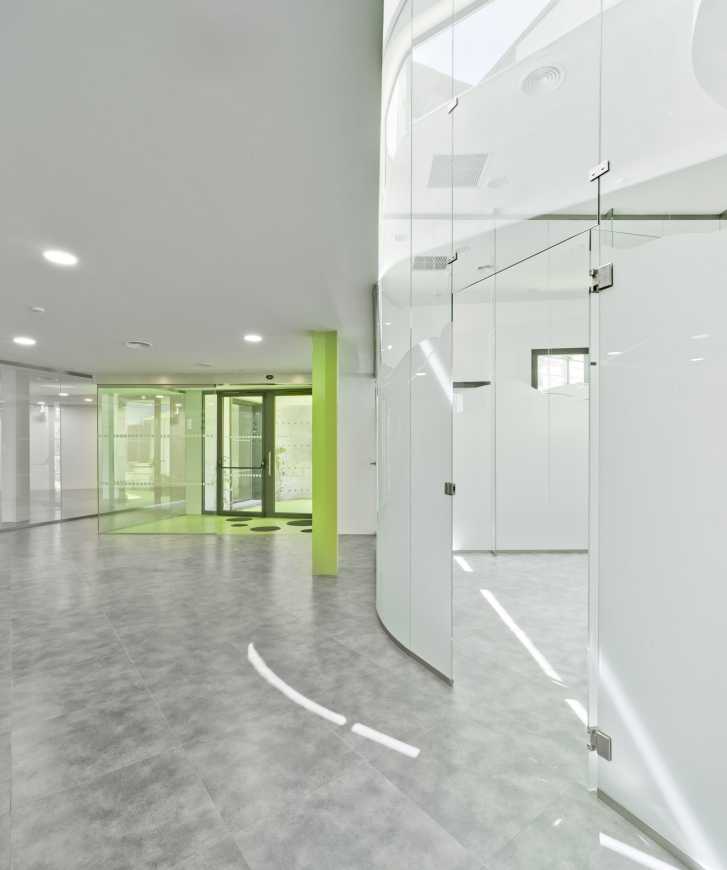
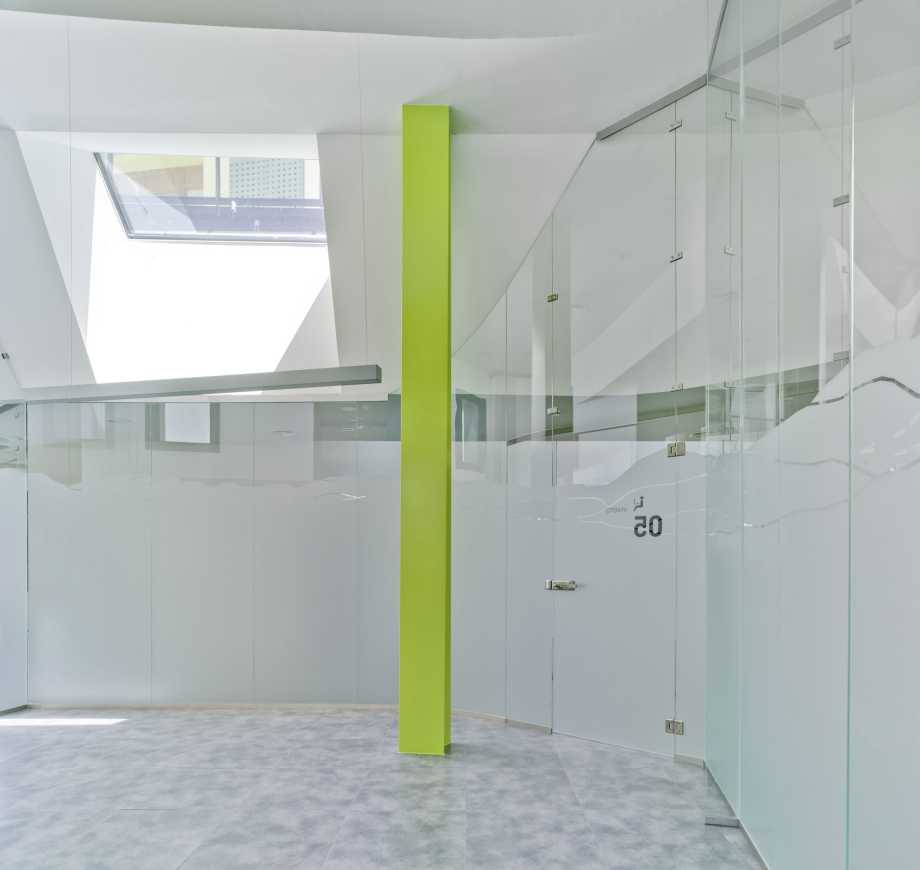
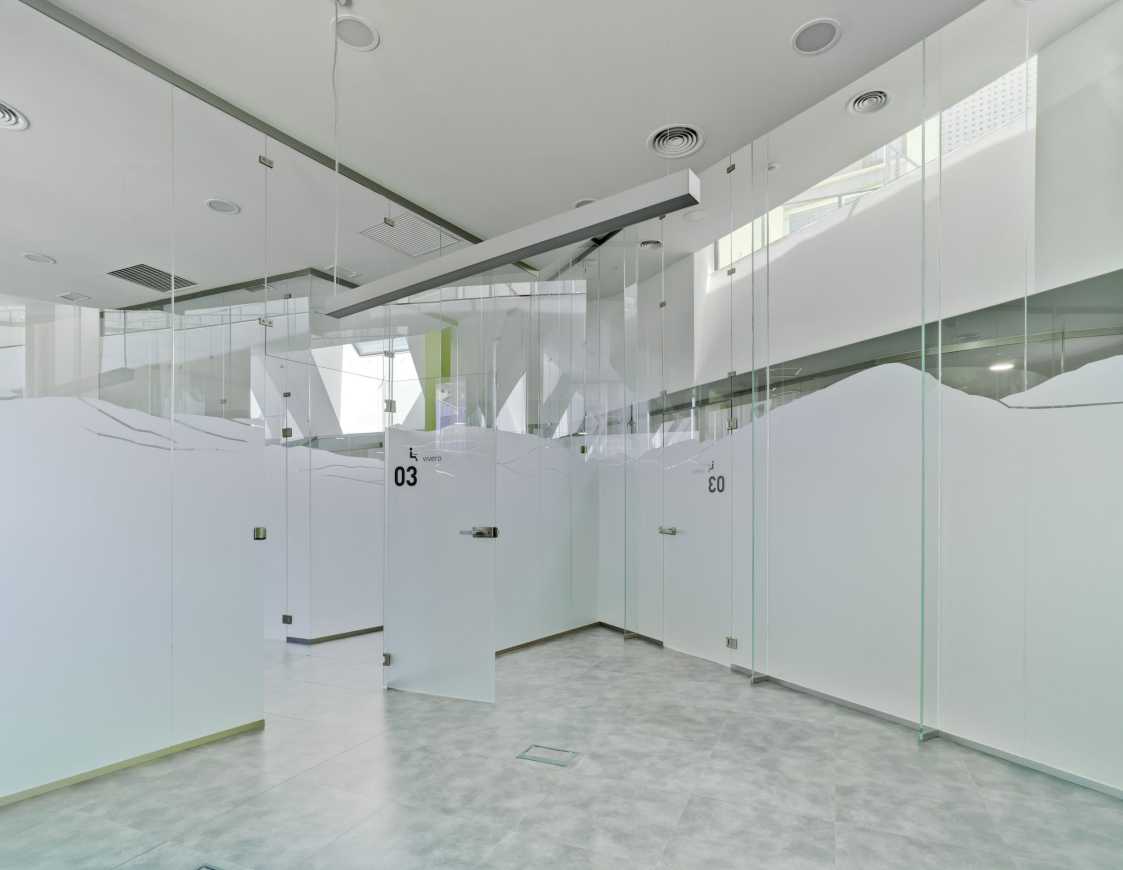
项目名称:“El Coso”花园及创业孵化园
项目地点:西班牙穆尔西亚Cehegin
建筑和技术建设管理:Monica Garcia Fernandez和Javier Rubio Montero (cómo crear historias)
工料测量师:Patricia Leon de la Cruz
承包商:Jose Diaz Garcia S.A.
结构工程:Dolores Romam
机械工程:AGM ingenieros, Jose Alberto Garcia Fernandez
安全与卫生协调员:Antonio Martínez Sánchez
开发商:切赫金市政府
照片:David Frutos
总面积:4436平方米
预算(材料和执行工作):3111262€
项目开始日期:2003年
施工周期:2011 – 2015
Project Name: “El Coso” garden and business incubator.
Project Location: Cehegín, Murcia, Spain (2003-2015)
Architects and technical construction management: Mónica García Fernández and Javier Rubio Montero (cómo crear historias)
Quantity surveyor: Patricia León de la Cruz
Contractor: Jose Diaz Garcia S.A.
Structural engineering: Dolores Romám
Mechanical engineering: AGM ingenieros, José Alberto García Fernández
Safety and health coordinator: Antonio Martínez Sánchez
Owner/ developer: Municipality of the city of Cehegín
Photographs: David Frutos
Total area: 4.436 m2
Budget (Materials and execution works): 3.111.262 €
Project start date: 2003
Construction period: 2011-2015
更多 Read more about: cómo crear historias




0 Comments